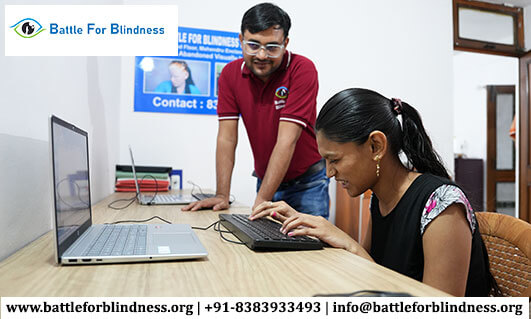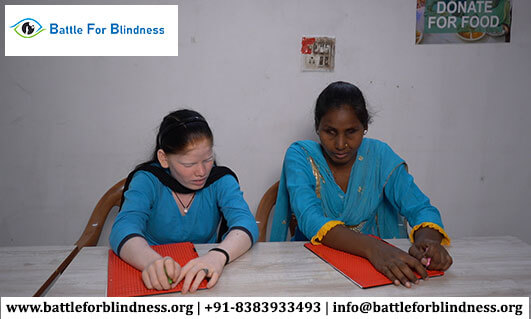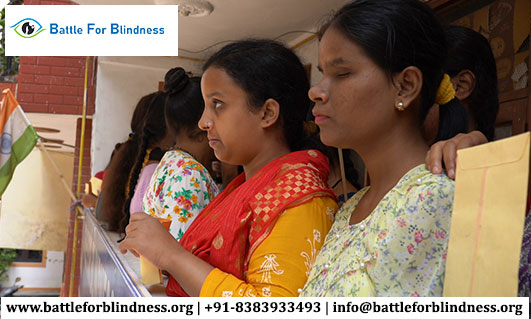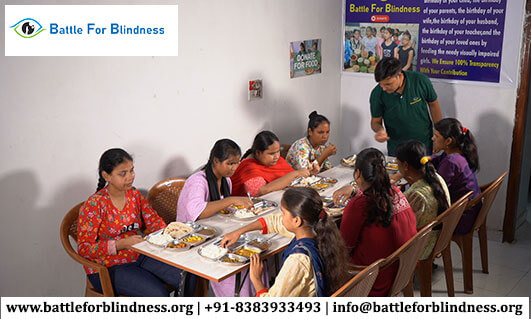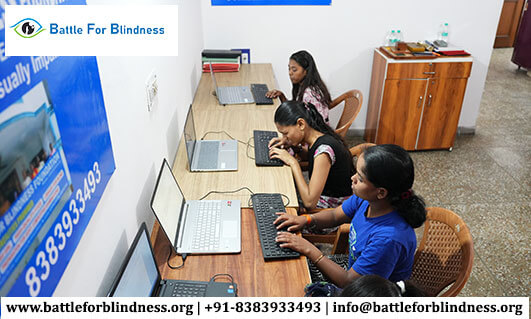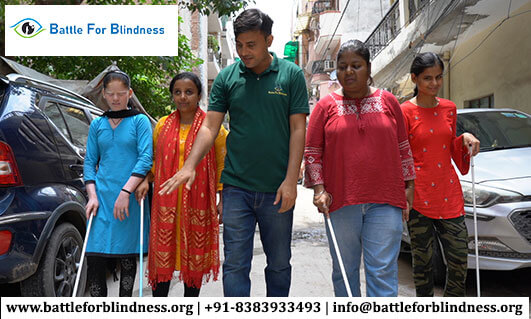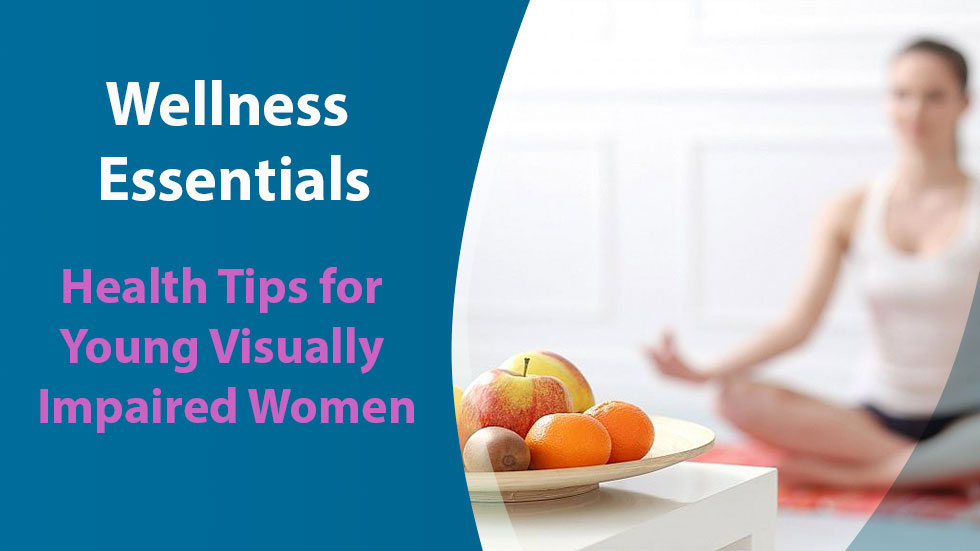
Living a healthy and balanced life is essential for everyone, but for young visually impaired women, certain health and wellness practices may require some extra considerations. Whether it’s managing mental health, staying physically active, or ensuring proper nutrition, maintaining good health plays a pivotal role in living an independent and fulfilling life. In this blog, we will discuss key health and wellness tips to help young visually impaired women live their best lives, focusing on physical well-being, mental health, and lifestyle choices.
1. Physical Activity: Embrace Movement and Fitness
Physical fitness is important for everyone, and staying active has numerous benefits. For visually impaired women, regular physical activity can help improve strength, balance, and flexibility, as well as reduce stress and improve overall mood. Here are a few fitness tips to consider:
- Adapted Sports: Many sports are accessible to visually impaired individuals, such as running with a guide, tandem cycling, goalball, and swimming. Joining a local adaptive sports club or finding a fitness buddy can help boost motivation and ensure safety.
- Yoga and Stretching: Yoga is an excellent way to improve flexibility, balance, and mindfulness. Many online classes and apps offer accessible yoga tutorials that provide audio cues to guide visually impaired practitioners. Starting with basic stretching exercises also promotes joint health and relaxation.
- Fitness Apps: Apps designed for blind and visually impaired individuals can help track physical activity, suggest workouts, and provide audio descriptions. Some popular options include Aira and Be My Eyes, which offer support in navigating new locations or checking in with a fitness trainer.
2. Mental Health: Practice Mindfulness and Self-Care
Mental health is just as important as physical health, and it’s essential to prioritize emotional well-being. Living with a visual impairment can sometimes lead to feelings of isolation or frustration, but there are several strategies to nurture mental health:
- Mindfulness and Meditation: Incorporating mindfulness exercises, such as meditation, deep breathing, or guided imagery, can help manage stress and reduce anxiety. There are accessible apps like Calm and Headspace that offer guided sessions designed for all abilities.
- Counseling and Support Groups: Seeking support through professional counseling or joining support groups for visually impaired individuals can provide valuable outlets to discuss challenges, share experiences, and learn coping strategies.
- Journaling and Reflection: Writing in braille or using voice-activated notes on smartphones can help process emotions and track personal growth. Reflecting on positive experiences and achievements can also enhance self-esteem and confidence.
3. Healthy Eating: Nutritious Meals for Well-being
A balanced diet is vital for maintaining energy levels, improving immune function, and supporting overall health. Healthy eating habits are essential for everyone, and visually impaired women can benefit from knowing how to make nutritious choices.
- Accessible Meal Preparation: Cooking can be an enjoyable activity that empowers visually impaired women to take control of their nutrition. Using accessible kitchen tools, such as talking thermometers, braille or tactile labels for food items, and adapted chopping boards, can make the process easier and safer.
- Focus on Nutrient-Dense Foods: A diet rich in fruits, vegetables, whole grains, lean proteins, and healthy fats can help boost energy and maintain overall health. Ensure that the meals are balanced with sufficient vitamins and minerals, particularly Vitamin A (for eye health), Vitamin D, calcium (for bone health), and Omega-3 fatty acids (for brain function).
- Meal Planning Services: For those who find cooking or meal preparation challenging, meal delivery services specifically designed for people with disabilities or those who require specialized diets can be a helpful solution. Some services provide braille or tactile menus to facilitate decision-making.
4. Personal Hygiene: Creating a Routine for Self-Care
Maintaining personal hygiene is an important part of self-care and overall well-being. For visually impaired women, there are many accessible tools and strategies to maintain cleanliness and feel confident.
- Accessible Personal Care Products: Many personal care items, like shampoos, soaps, and lotions, come with tactile labels or can be labeled with braille stickers. Additionally, voice-activated devices, like smart mirrors or talking grooming tools, can assist with grooming tasks.
- Establishing a Routine: Setting a consistent personal hygiene routine, such as bathing, brushing teeth, and skincare, can improve both hygiene and confidence. Organizing bathroom products with tactile containers or trays can ensure that each item is easy to locate and use.
- Dressing for Comfort and Confidence: Fashion and style are powerful forms of self-expression, and dressing comfortably and confidently can enhance self-esteem. Adaptive clothing that is easy to put on and take off, combined with accessible ways to select and organize clothes, can make daily routines easier.
5. Sleep Hygiene: Quality Rest for Rejuvenation
A good night’s sleep is essential for physical recovery, mental clarity, and emotional balance. Young visually impaired women, like everyone else, need to ensure they are getting quality sleep to feel their best.
- Establishing a Sleep Routine: A consistent bedtime routine can help signal to the body when it’s time to rest. This can include calming activities like reading, using relaxation techniques, or listening to soothing music or podcasts.
- Optimizing Sleep Environment: Creating a comfortable sleep space is key to improving sleep quality. Using blackout curtains, tactile clocks, and smart lighting can help regulate the sleep environment. Smart alarms or vibrating devices can assist in waking up gently without disturbing the sleep cycle.
- Reducing Screen Time Before Bed: Limiting the use of electronic devices before bed, particularly those emitting blue light, can help maintain healthy sleep patterns. Reading or listening to audiobooks before bed is a great alternative for relaxation.
6. Staying Connected: Building Social Networks and Support
Strong social connections are vital for emotional well-being. Building and maintaining relationships with friends, family, and community members can enhance feelings of belonging and support.
- Join Social or Volunteer Groups: Participating in social, cultural, or volunteer activities can foster connections and offer opportunities for personal growth. Many communities have organizations and events that support visually impaired individuals, providing opportunities for networking and collaboration.
- Technology for Connection: Social media platforms and communication apps like WhatsApp, Facebook, and Zoom can help connect visually impaired individuals with loved ones and peers. Voice assistants, such as Alexa or Siri, can also assist with staying in touch and organizing social plans.
Conclusion
Taking care of your health and well-being is a holistic process that requires attention to both body and mind. For young visually impaired women, focusing on physical fitness, mental health, nutrition, personal hygiene, and sleep hygiene can help foster a strong sense of independence and confidence. By utilizing adaptive technologies, seeking support when needed, and creating healthy routines, visually impaired women can lead vibrant, fulfilling lives while prioritizing their health and wellness.
